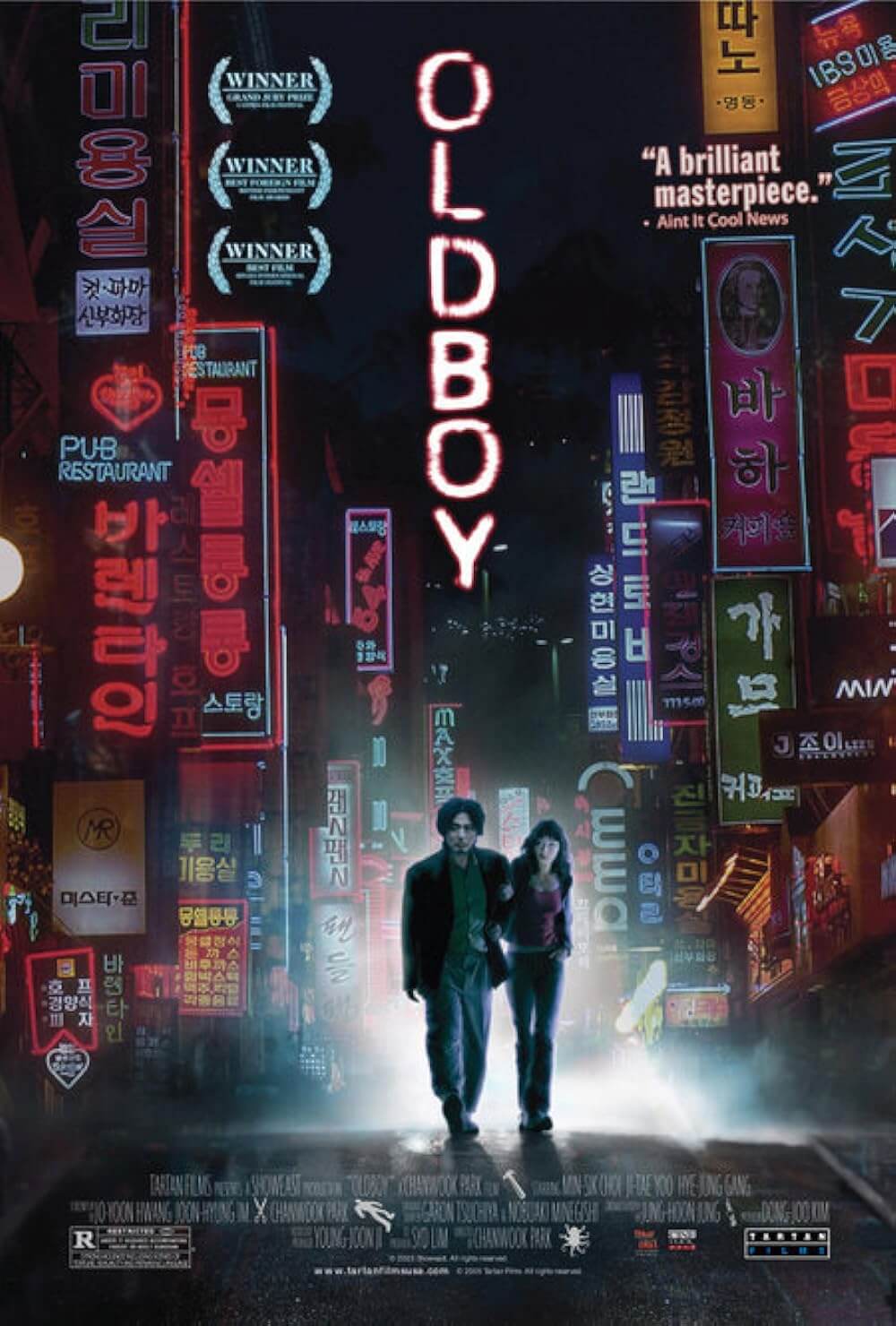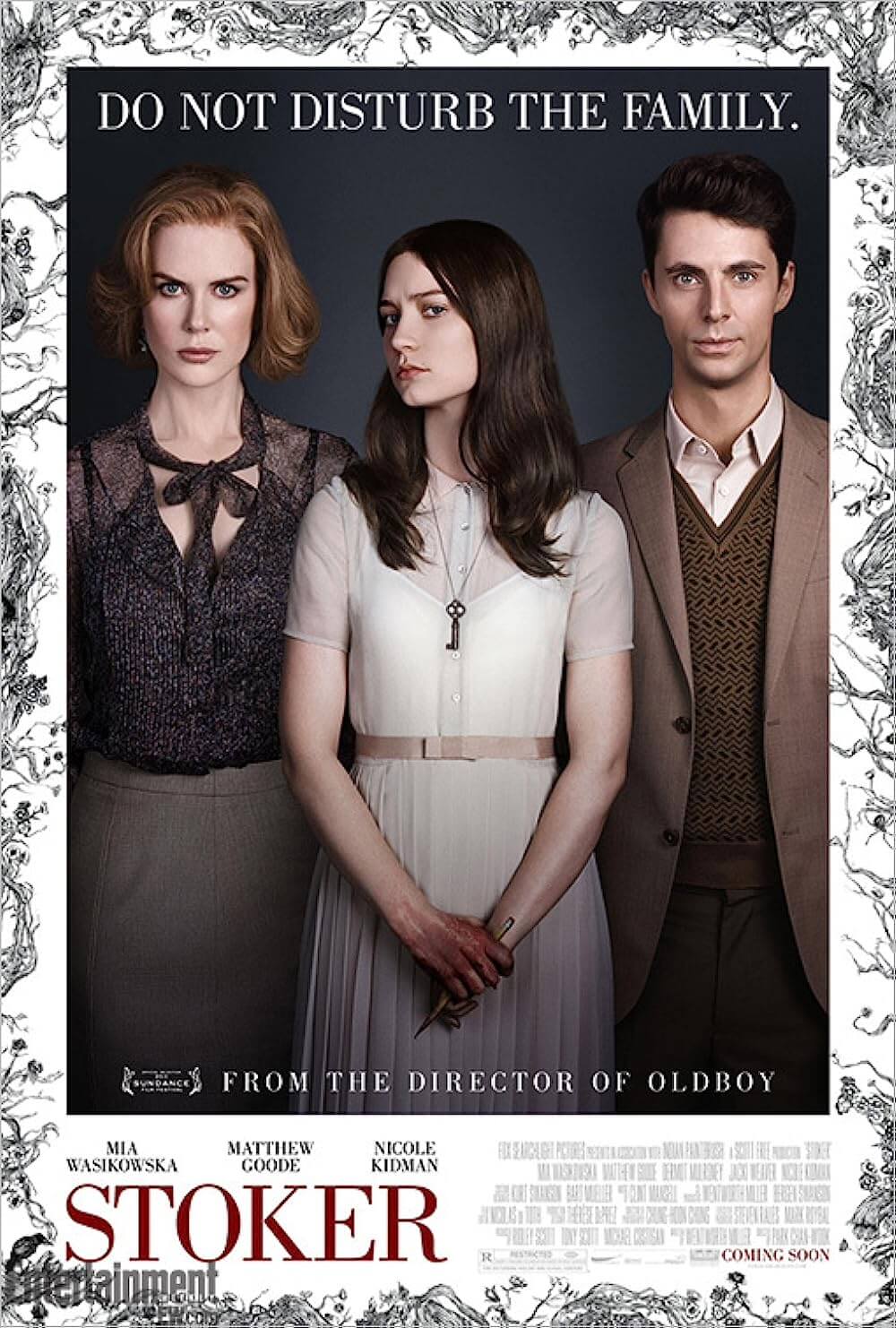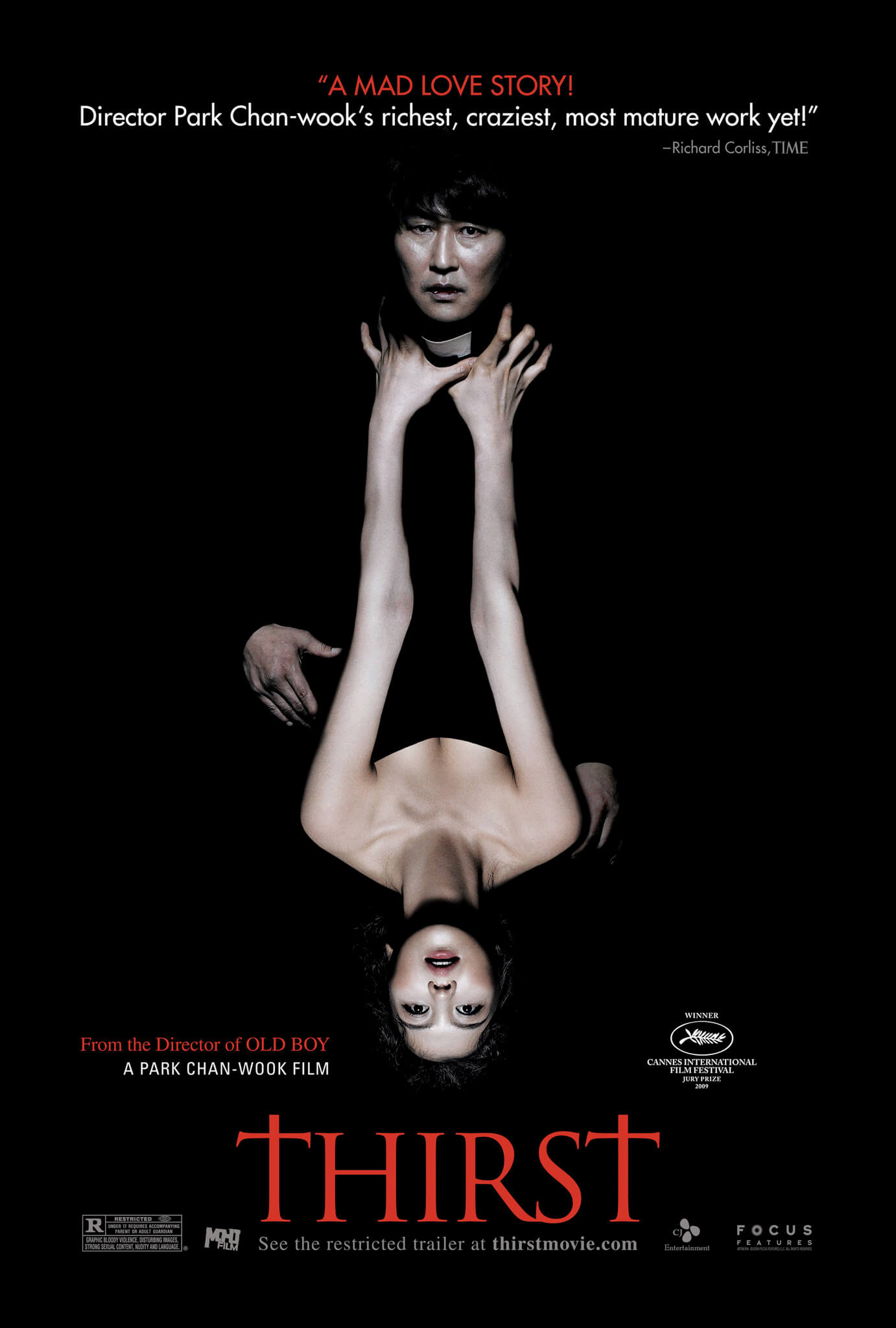Reader's Choice
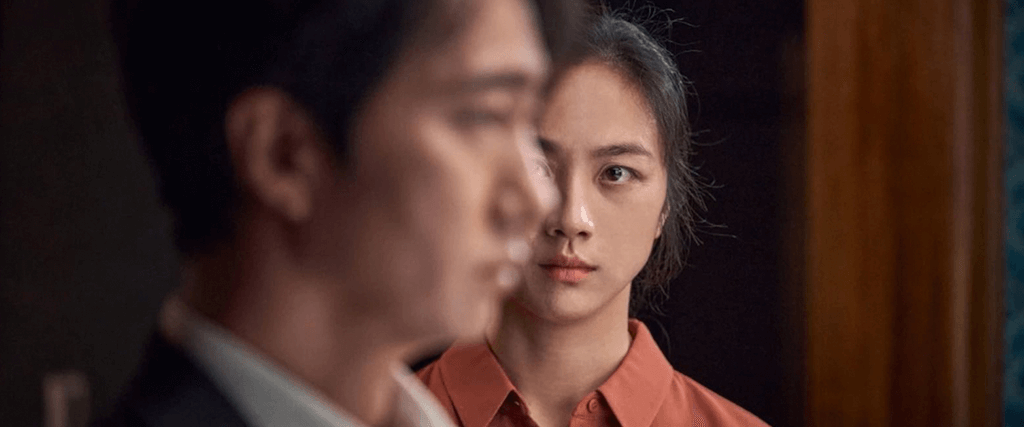
Decision to Leave
By Brian Eggert |
A recurring motif in Decision to Leave, the film that earned Park Chan-wook the 2022 Best Director award at the Cannes Film Festival, involves language translation on a smartphone app. In Park’s restrained romance, Hae-joon (Park Hae-il), an insomniac police detective, investigates Seo-rae (Tang Wei), a widow, after her husband falls to his death in a supposed solo rock-climbing accident. Seo-rae is a Chinese immigrant who admits that her late husband beat her; she also admits that her Korean is “inadequate,” though no one else seems to think so. Regardless, when recounting difficult memories about how she was smuggled into the country or details about her husband, she uses a translation app that takes out the emotion of her statements and renders them in flat, artificial tones. The characters in Decision to Leave often use technology, among other methods, to put layers between them and others. While the film is at once a classical detective yarn and a tale of forbidden love, it’s also about the boundaries people deploy and the actions they take to protect themselves and others. Although technology is supposed to bring people together, it’s another barrier that creates a disconnect—and it’s symptomatic of our unconscious desire to yearn for something we cannot have.
Park made a name for himself with extreme cinema in his “Vengeance Trilogy” (including Sympathy for Mr. Vengeance, Oldboy, and Lady Vengeance), his novel take on vampires in Thirst (2009), and 2016’s thrilling con-artist romance The Handmaiden. Although the South Korean auteur’s work is often steeped in bloody violence, forbidden sex, and familiar genres, he never adheres to established conventions. Decision to Leave is no different, except its temperament is much softer than his audience may expect; it’s refreshingly light, even playful in a manner not seen in his work since 2006’s I’m a Cyborg, But That’s OK. The screenplay by Park and Chung Seo-kyung also recalls several classical films about obsessed detectives and forbidden romances; he alludes to Alfred Hitchcock’s Vertigo (1958) and David Lean’s Brief Encounter (1945). But Park’s treatment of these genres and character tropes revives them in a tricky way that keeps the viewer at an intentional distance, trying to see clearly through the unspoken language of desire between Hae-joon and Seo-rae
It’s a symbolic undercurrent through Decision to Leave, accented several times by the presence of Jung Hoon-hee’s 1967 song “Mist,” which partly inspired the film. The misty city of Ipo also becomes a vital location in the film’s second half, where Hae-joon lives with his wife, Jung-an (Lee Jung-hyun), who is constantly telling him statistics about what makes a healthy middle-aged man or a marriage that lasts. Meanwhile, Hae-joon investigates Seo-rae for murdering her husband. Wei, known best for her breakout role in Ang Lee’s superb Lust, Caution (2007), maintains her character’s ambiguity with brilliant restraint. From the initial interrogation—which involves Hae-joon ordering her premium sushi to Seo-rae pulling up her dress so he can take pictures of scratches—the chemistry between them never quite becomes a full and observable reaction, but there’s something brewing between them nonetheless. Just watch the way they clean up together like a married couple or brush their teeth after sharing an expensive lunch in the interrogation room.
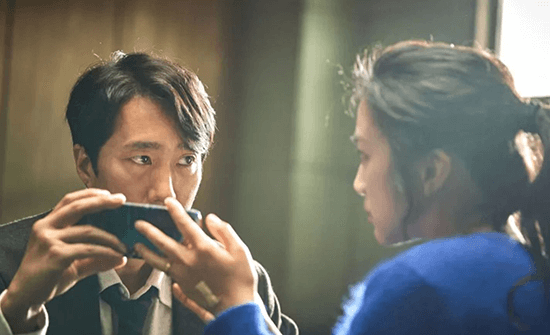
Hae-joon has more important investigations on his desk, such as a murder case in a Busan district. But he finds himself compelled toward Seo-rae for reasons he cannot articulate. On a stakeout, he watches her perform her duties as a nurse for an elderly patient and imagines himself inside the room; he does the same at night, projecting himself beside her as she smokes cigarettes or eats ice cream for dinner. But Seo-rae follows him, too—she takes a photo of Hae-joon as he sleeps “unusually well” in his car outside her home, and she watches him take down a suspect in a knife fight. Aware of their mutual circulation around one another, their anticipation for their next encounter comes through in Kim Sang-bum’s editing, where moments from the next scene in the story’s chronology invade the present moment like a flashforward. Soon, he has reasons to cook her dinner and meet her at his apartment. But their would-be affair never materializes in the way the viewer expects—the way a more conventional genre exercise, such as Basic Instinct (1992), might make the detective and his suspect participants in a sordid and dangerous relationship.
Instead, Decision to Leave maintains a will-they-or-won’t-they dynamic, never letting on about Seo-rae’s true intentions until the final third. She might be a classical femme fatale with a string of dead bodies in her past, wholly aware of her power over Hae-joon and manipulating him. Perhaps it’s a flaw of the film that this never seems likely—not even later, after more than a year passes since her husband died, and Seo-rae marries again, and again Hae-joon must investigate her for murder and question the pattern of death in her wake. Cleverly, the answers are concealed in devices—audio files stored on phones and smartwatches, which are protected by passwords or tossed in the ocean. Moreover, the devices conceal the meaning behind the evidence, requiring interpretation. Similarly, Park also conceals answers with language, such as the vital translation of “shatter” or how Seo-rae laughs suspiciously at herself when she speaks Korean. When there are intimate gestures between them, they are subtle and achingly romantic, such as sharing chapstick or lines such as “I’d like to change my sleep with you, like batteries.” On a second viewing, after our questions about the central crimes have been answered, Decision to Leave may bloom—every interaction between Hae-joon and Seo-rae may read differently, full of yearning and self-restraint.
Decision to Leave finds Park mining his characters’ emotions yet expressing what they cannot through his attention to formal choices. Cinematographer Kim Ji-yong uses fluid extended shots, stunning compositions, and elaborate camerawork, while the editing style is sharp with a discordant tempo. The overall effect echoes the uneasy desire and questions between the two leads. Park’s hints of almost Sirkian melodrama appear in bold visual flourishes, such as the rock from which Seo-rae’s husband falls—an expressive set constructed by production designer Ryu Seong-hie, recalling a miniature Devil’s Tower with a bonsai-like tree on its smooth top. Park’s direction is incredibly assured, even if characters such as Hae-joon’s wife or partner feel somewhat underserviced by the script. In the end, there’s a tragic sense of the sacrifices Hae-joon and Seo-rae have made for each other and the puzzlework their relationship inhabits throughout. Park turns the viewer into a detective, rifling through a crime scene to find evidence of the aching truth; by the end, we’re just as shattered as Hae-joon.
(Note: This review was originally posted to Patreon on November 9, 2022.)
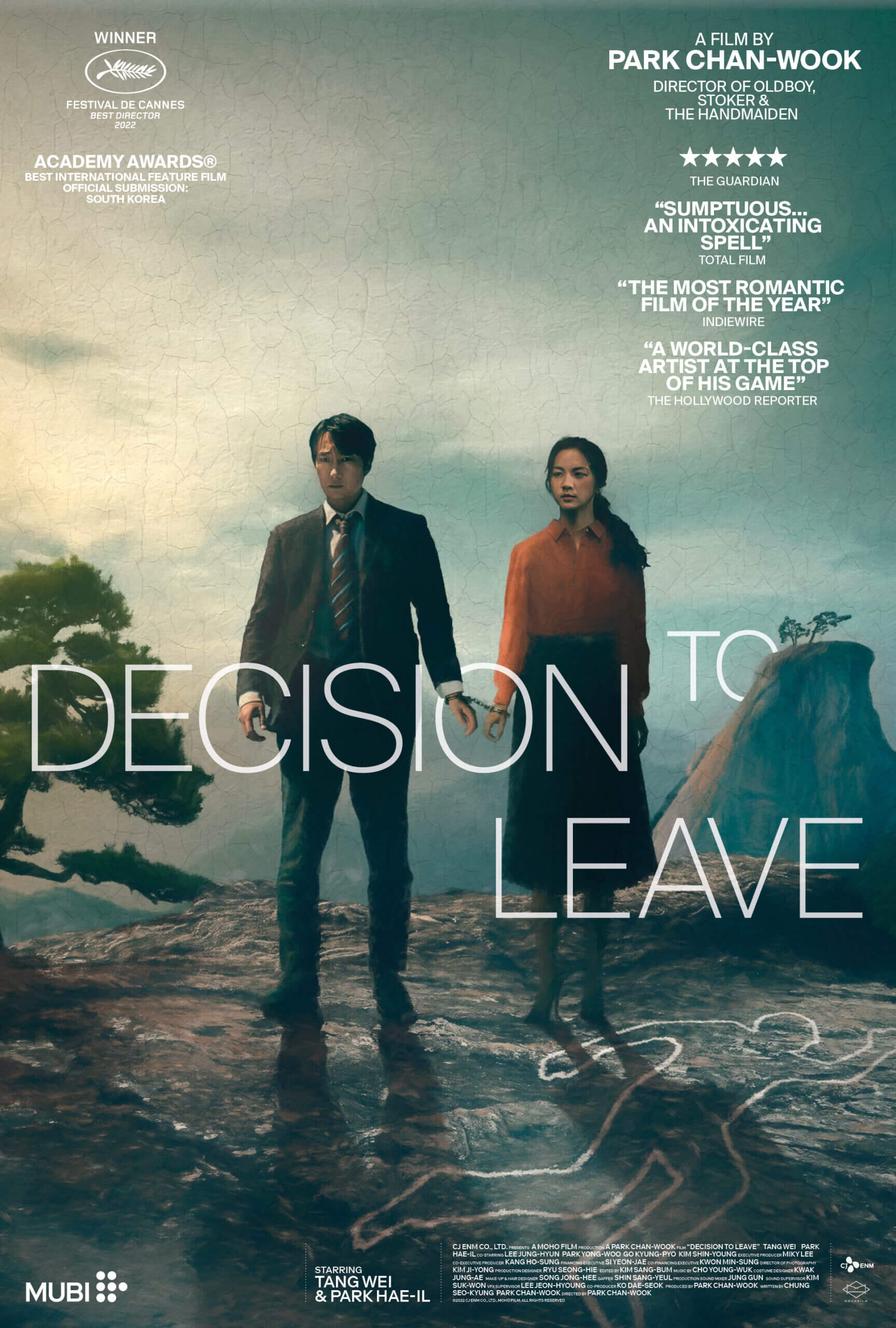
Unlock More from Deep Focus Review
To keep Deep Focus Review independent, I rely on the generous support of readers like you. By joining our Patreon community or making a one-time donation, you’ll help cover site maintenance and research materials so I can focus on creating more movie reviews and critical analysis. Patrons receive early access to reviews and essays, plus a closer connection to a community of fellow film lovers. If you value my work, please consider supporting DFR on Patreon or show your support in other ways.
Thank you for your readership!
Brian Eggert | Critic, Founder
Deep Focus Review


